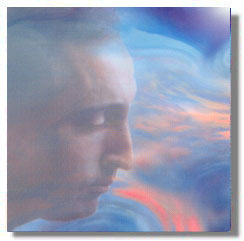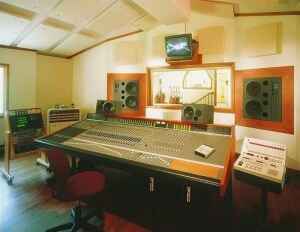 |
When Paul Avgerinos graduated from the Peabody Conservatory of Music in 1980, as a full scholarship honors student, he had already performed as a bassist with Isaac Stern, Jean Pierre Rampal, The Beaux Arts Trio, Baryshnikov and many other great classical artists. He also has won scholarships to play and study at music festivals in Tanglewood, Aspen, Grand Teton, Taos, and Spojeto (Italy). After graduation, Paul served as principal bass of several major symphony orchestras around the world, and gave solo recitals as well.
Expanding into more popular genres, Avgerinos toured as a bassist with Charles Aznavour, Liza Minelli, and the jazz legend Buddy Rich. Seeking to further his original composition and develop his childhood passion for electronic music, Paul built Studio Unicorn, a comprehensive digital/analog recording studio in 1984. Seven solo CDs in the new age genre followed. including "Maya; The Great Katun" on the World Room label and "Muse of the Round Sky" on the Hearts of Space label. "Muse" was nominated for a Grammy and is played on more than 2,000 radio stations around the world on syndicated shows such as Music from the Hearts of Space and John Oiliberto's Echoes. Two thirty-minute features with the latter are added to his credits along with his many other radio interviews. He has appeared on five sampler CDs and as a guest artist on albums by Joanie Madden, Faruk Tekbilek. Joaquin Lievano, Brian Keane and others.
Paul records and produces many popular albums as well and has worked with artists as diverse as Run DMC, Richie Havens, and Jewel. Avgerinos always makes time for scoring and has worked on over fifty film, TV, and cable projects for HBO, PBS, and Lifetime, among others. Keeping busy creating original music for a variety of interesting and rewarding projects is a way of life. Currently, he lives and works in Redding, Connecticut, where the deer pass by his studio windows and the hawks and eagles give inspiration from above.
 |
When I first listened to these recordings, I was reminded of some of the music of the great German opera composer, Richard Wagner. Not Wagner's famous heroic military themes such as Die Walküre, or the well known arias (the "fat lady" singing), but the beautiful sections of orchestral music that subtly knit Wagner's operas together. These are soft, gentle, spiritual passages that are, to me, the first examples of space music. When I mentioned this to Paul, he replied, "I have always been enamored with Wagner's broad , arching , sweeping chromatic romanticism. How very perceptive of you to see the connection."
Too often, new age and space music is boring and without interest. I speculate that this is because it is so easy for people to feed sounds through chains of echo and reverb to get something that "sounds good". But Paul Avgerinos has created something that is much more. This is real music that is always interesting, even when it's form is sustained and very extended. This is space music that serious musicians would like.


